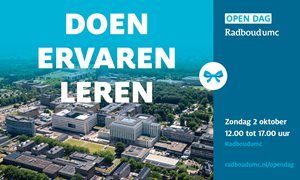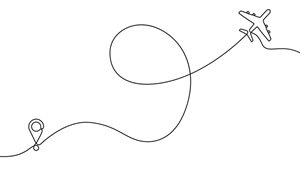
In people who have had a mild infection with the corona virus, antibodies are subsequently found in the nasal fluid. These antibodies are present in the mucous membranes of the nose for up to nine months after infection. This is shown by researchers from Radboud university medical center in a publication in Nature Communications.
The nose as the gateway for infection
Coronavirus SARS-CoV-2 is spread by droplets that are released during, for example, via talking, coughing or singing. A person can become infected with the virus if these droplets are inhaled through the mouth and especially the nose. The nose is the gateway for the coronavirus: the virus enters the body through the mucous membranes. Following first contact with the virus (or vaccination), the body starts making antibodies so that the virus can be recognized and rapidly removed during the next contact.
But how long does it actually take for these antibodies to be produced? And how long do they remain present in the respiratory tract? Two questions immunologists Dimitri Diavatopoulos and Marien de Jonge asked themselves. They also wanted to know whether the amount of antibodies in the nose determined the amount of virus found and the degree of COVID-19-related complaints.
Infections within families
The study, performed by Radboud university medical center, began during the first corona wave, in April 2020. Fifty healthcare workers and their families participated. These healthcare workers had all tested positive for SARS-CoV-2. Of the 137 household members living with these healthcare workers, eighty were found to be infected. Age of the roommates did not affect the likelihood of infection: 57% of 0 to 18 year olds, 58% of 18 to 49 year olds and 61% of 50+ year old roommates were found to be infected with SARS-CoV-2. Of these groups, no one was hospitalized, but older individuals were found to have more COVID-19 symptoms than younger individuals. Patients who had produced more nasal antibodies showed a more rapid decline in flu-like symptoms such as fever, chills, muscle aches and fatigue, but not in respiratory symptoms such as cough and sore throat. The study further showed that participants with more antibodies in the nose generally had less virus in the nose.
How quickly does immunity decline?
In all of the participants who were eventually found to be infected with SARS-CoV-2, the researchers saw an increase in antibodies in the nasal fluid in the first month after infection. The amount of antibodies in the nose then slowly decreased, but was still present in all participants after nine months. Dimitri Diavatopoulos: "By measuring the amount of antibodies in the nose, whether after infection or after vaccination, we can keep a close eye on the immune system against the virus. Because nasal fluid is very easy to obtain without discomfort, we can also measure antibodies more easily in young children. For many people this will be easier than collecting blood."
This research shows that antibodies in the respiratory tract also play an important role in removing virus and reducing symptoms after infection. Diavatopoulos: "And this probably applies not only to COVID-19, but also to other respiratory infections. This study can serve as a blueprint for further research."
About the publication in Nature Communications
SARS-CoV-2 mucosal antibody development and persistence and their relation to viral load and COVID-19 symptoms - Janeri Fröberg, Joshua Gillard, Ria Philipsen, Kjerstin Lanke, Joyce Rust, Diana van Tuijl, Karina Teelen, Teun Bousema, Elles Simonetti, Christa E. van der Gaast-de Jongh, Mariska Bos, Frank J. van Kuppeveld, Berend-Jan Bosch, Marrigje Nabuurs-Franssen, Nannet van der Geest-Blankert, Charlotte van Daal, Martijn A. Huynen, Marien I. de Jonge, Dimitri A. Diavatopoulos.
This study was conducted by the Laboratory of Medical Immunology at Radboud university medical center, in particular by Janeri Fröberg, together with Joshua Gillard. They collaborated with colleagues from AMD, CMBI and Medical Microbiology, as well as with colleagues from Utrecht University.
-
Want to know more about these subjects? Click on the buttons below for more news.
More information
Pauline Dekhuijzen

wetenschaps- en persvoorlichter
Related news items

Take a special look inside Radboudumc on 2 October Open Day for young and old
12 September 2022On Saturday 1 and Sunday 2 October, the Radboud university medical center, Radboud University and the HAN are participating in the 'Weekend van de Wetenschap'. At all locations there are fun and interesting programs for young and old.
go to page
First Dutch professor of infectious disease outbreaks at Radboud university medical center
4 June 2021 Chantal Bleeker-Rovers about research on coronavirus, Q fever and other infectious diseases outbreaks go to page
Radboudumc researchers publish new insights into COVID-19 Consequences for treatment are now being examined internationally
10 April 2020 Researchers at the Radboud university medical center seem to have found an essential mechanism in the disease process of Covid-19, which has so far been overlooked. If the insight is correct, it probably has important consequences for the treatment of the disease. go to page


